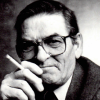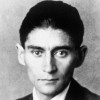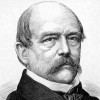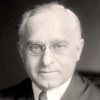The control of our being is not unlike the combination of a safe. One turn of the knob rarely unlocks the safe. Each advance and retreat is a step toward one’s goal.
Eric Hoffer (1902-1983) American writer, philosopher, longshoreman
Passionate State of Mind, Aphorism 196 (1955)
(Source)
Quotations about:
process
Note not all quotations have been tagged, so Search may find additional quotes on this topic.
Forgiveness is not easy. Forgiveness is a train with many stops, and it takes forever to get where you are going. And you cover a lot of territory along the way, not necessarily by the most direct route, either. That’s why forgiveness is a process, and as much a blessing for the person who was wronged as for the person who did the wronging. And it’s hardest when the person you most need to forgive is yourself.
Elizabeth Bear (b. 1971) American author [pseud. for Sarah Bear Elizabeth Wishnevsky]
Ancestral Night (2019)
(Source)
I have always regarded technique as a means, not an end in itself. One must, of course, master techniques; at the same time, one must not become enslaved by it — one must understand that the purpose of technique is to transmit the inner meaning, the message, of the music. The most perfect technique is that which is not noticed at all.
Pablo Casals (1876-1973) Spanish cellist, conductor, composer
Joys and Sorrows, ch. 5 (1970) [with Albert E. Kahn]
(Source)
The supposition is prevalent the world over that there would be no problems in production or service if only our production workers would do their jobs in the way that they were taught. Pleasant dreams. The workers are handicapped by the system, and the system belongs to the management.
W. Edwards Deming (1900-1993) American management consultant, educator
Out of the Crisis, ch. 3 (1982)
(Source)
Every one sees what you appear to be, few really know what you are, and those few dare not oppose themselves to the opinion of the many, who have the majesty of the state to defend them; and in the actions of all men, and especially of princes, which it is not prudent to challenge, one judges by the result. For that reason, let a prince have the credit of conquering and holding his state, the means will always be considered honest, and he will be praised by everybody because the vulgar are always taken by what a thing seems to be and by what comes of it.
Niccolò Machiavelli (1469-1527) Italian politician, philosopher, political scientist
The Prince, ch. 18 (1513) [tr. Marriott (1908)]
(Source)
Origin of the paraphrase "The ends justify the means," which is generally attributed to Machiavelli.
There is a role for bureaucracy; it’s very useful for certain tasks. In particular, it facilitates standardization and interchangeability. Bureaucracies excel at performing tasks that must be done consistently whether the people assigned to them are brilliant performers or bumbling fools. You can’t always count on having Albert Einstein in the patent office, so you design its procedures to work even if you hire Mr. Bean by mistake.
Life is not made up of dramatic incidents — even the life of a nation. It is made up of slowly evolving events and processes, which newspapers, by a score of different forms of emphasis, can reasonably attempt to explore from day to day. But television news jerks from incident to incident. For the real world of patient and familiar arrangements, it substitutes an unreal world of constant activity, and the effect is already apparent in the way which the world behaves. It is almost impossible, these days, to consider any problem or any event except as a crisis; and, by this very way of looking at it, it in fact becomes a crisis.
The Laundry field operations manual is notably short on advice for how to comport one’s self when being held prisoner aboard a mad billionaire necromancer’s yacht, other than the usual stern admonition to keep receipts for all expenses incurred in the line of duty.
In the Laundry we supposedly pride ourselves on our procedures. We’ve got procedures for breaking and entering offices, procedures for reporting a shortage of paper clips, procedures for summoning demons from the vasty deeps, and procedures for writing procedures. We may actually be on track to be the world’s first ISO-9000 total-quality-certified intelligence agency. According to our written procedure for dealing with procedural cluster-fucks on foreign assignment, what I should do at this point is fill out Form 1008.7, then drive like a bat out of hell over Highway 17 until it hits the Interstate, then take the turnoff for San Francisco Airport and use my company credit card to buy the first available seat home. Not forgetting to file Form 1018.9 (“expenses unexpectedly incurred in responding to a situation 1008.7 in the line of duty”) in time for the end of month accounting cycle.
Science doesn’t purvey absolute truth. Science is a mechanism. It’s a way of trying to improve your knowledge of nature. It’s a system for testing your thoughts against the universe and seeing whether they match. And this works, not just for the ordinary aspects of science, but for all of life. I should think people would want to know that what they know is truly what the universe is like, or at least as close as they can get to it.
Isaac Asimov (1920-1992) Russian-American author, polymath, biochemist
Interview (1988) by Bill Moyers, A World of Ideas, PBS TV (1988-10-22)
(Source)
(Source (Video))
Part 2 of the interview (the first half aired 1988-10-17). Collected in Bill Moyers, A World of Ideas (1989).
All human errors are impatience, the premature breaking off of what is methodical, an apparent fencing in of the apparent thing.
[Alle menschlichen Fehler sind Ungeduld, ein vorzeitiges Abbrechen des Methodischen, ein scheinbares Einpfählen der scheinbaren Sache.]
Franz Kafka (1883-1924) Czech-Austrian Jewish writer
Notebook, Aphorism # 2 [tr. Kaiser and Wilkins]
(Source)
Alt. trans.: "All human errors are impatience, a premature breaking off of methodical procedure, an apparent fencing-in of what is apparently at issue."
Laws, like sausages, cease to inspire respect in proportion as we know how they are made.
Otto von Bismarck (1815-1898) Prussian statesman
(Misattributed)
This and variants are attributed to Bismarck (no earlier than the 1930s), as well as to Kaiser Wilhelm, Benjamin Disraeli, and French statesman Honoré Gabriel de Riqueti. Variations on this theme were popular in late 19th Century America.
The precise wording above is attributed to Vermont lawyer and author John Godfrey Saxe, in University Chronicle, University of Michigan (27 Mar 1869).
Variants (usually cited to Bismarck):
- "If you like laws and sausages, you should never watch either one being made."
- "Laws are like sausages — it is best not to see them being made."
- "Laws are like sausages. It is better not to see them being made."
- "Laws are like sausages. You should never see them made."
- "Laws are like sausages. You should never watch them being made."
- "Law and sausage are two things you do not want to see being made."
- "No one should see how laws or sausages are made."
- "To retain respect for sausages and laws, one must not watch them in the making."
- "The making of laws like the making of sausages, is not a pretty sight."
- "Je weniger die Leute darüber wissen, wie Würste und Gesetze gemacht werden, desto besser schlafen sie nachts." [The less the people know about how sausages and laws are made, the better they sleep in the night.]
It is not enough to take steps which may some day lead to a goal; each step must be itself a goal and a step likewise.
Johann Wolfgang von Goethe (1749-1832) German poet, statesman, scientist
Conversations with Eckermann, “Conversations of Goethe: 18 September 1823” [tr. Oxenford (1850)]
(Source)
The greatest of human problems, and the greatest of our common tasks, is to keep the peace and to save the future. All that we have built in the wealth of nations, and all that we plan to do toward a better life for all, will be in vain if our feet should slip, or our vision falter, and our hopes ended in another worldwide war. If there is one commitment more than any other that I would like to leave with you today, it is my unswerving commitment to the keeping and to the strengthening of the peace. Peace is a journey of a thousand miles and it must be taken one step at a time.
Lyndon B. Johnson (1908-1973) American politician, educator, US President (1963-69)
Speech (1963-12-17), United Nations General Assembly
(Source)
John Kennedy had used the same "journey" phrase from Lao-tzu early that year, before his assassination.
For it is not enough to have a good mind; the main thing is to apply it well. The greatest souls are capable of the greatest vices as well as the greatest virtues; and those who proceed but very slowly can make much greater progress, if they always follow the right path, than those who hurry and stray from it.
[Car ce n’est pas assez d’avoir l’esprit bon, mais le principal est de l’appliquer bien. Les plus grandes âmes sont capables des plus grands vices aussi bien que des plus grandes vertus; et ceux qui ne marchent que fort lentement peuvent avancer beaucoup davantage, s’ils suivent toujours le droit chemin, que ne font ceux qui courent et qui s’en éloignent.]
René Descartes (1596-1650) French philosopher, mathematician
Discourse on Method [Discours de la méthode], Part 1 (1637) [tr. Cottingham, Stoothoff (1985)]
(Source)
Sometimes quoted "the main thing is to use it well." (Source (French)). Alternate translations:For ’tis not enough to have good faculties, but the principal is, to apply them well. The greatest Souls are as capable of the greatest Vices, as of the most eminent Vertues: And those who move but very slowly, may advance much farther, if they always follow the right way; then those who run and straggle from it.
[tr. Newcombe ed. (1649)]For to be possessed of a vigorous mind is not enough; the prime requisite is rightly to apply it. The greatest minds, as they are capable of the highest excellences, are open likewise to the greatest aberrations; and those who travel very slowly may yet make far greater progress, provided they keep always to the straight road, than those who, while they run, forsake it.
[tr. Veitch (1901)For to be possessed of good mental powers is not sufficient; the principal matter is to apply them well. The greatest minds are capable of the greatest vices as well as of the greatest virtues, and those who proceed very slowly may, provided they always follow the straight road, really advance much faster than those who, though they run, forsake it.
[tr. Haldane, Ross (1911)]
It is enough that the people know there was an election. The people who cast the votes decide nothing. The people who count the votes decide everything.
[Я считаю, что совершенно неважно, кто и как будет в партии голосовать; но вот что чрезвычайно важно, это – кто и как будет считать голоса.]
Josef Stalin (1879-1953) Georgian revolutionary and Soviet dictator
Comment (1923)
Alternate translation: "Those who cast the votes decide nothing. Those who count the votes decide everything."
Alternate translation: "I consider it completely unimportant who in the party will vote, or how; but what is extraordinarily important is this -- who will count the votes, and how." Quoted in B. Bazhanov, The Memoirs of Stalin's Former Secretary (1992) [Борис Бажанов. Воспоминания бывшего секретаря Сталина], regarding elections to the Central Committee of the Communist Party.
The quotation is considered dubious by a number of sources.
The phrase was used by Tom Stoppard in Jumpers (1972): "It's not the voting that's democracy, it's the counting."


















